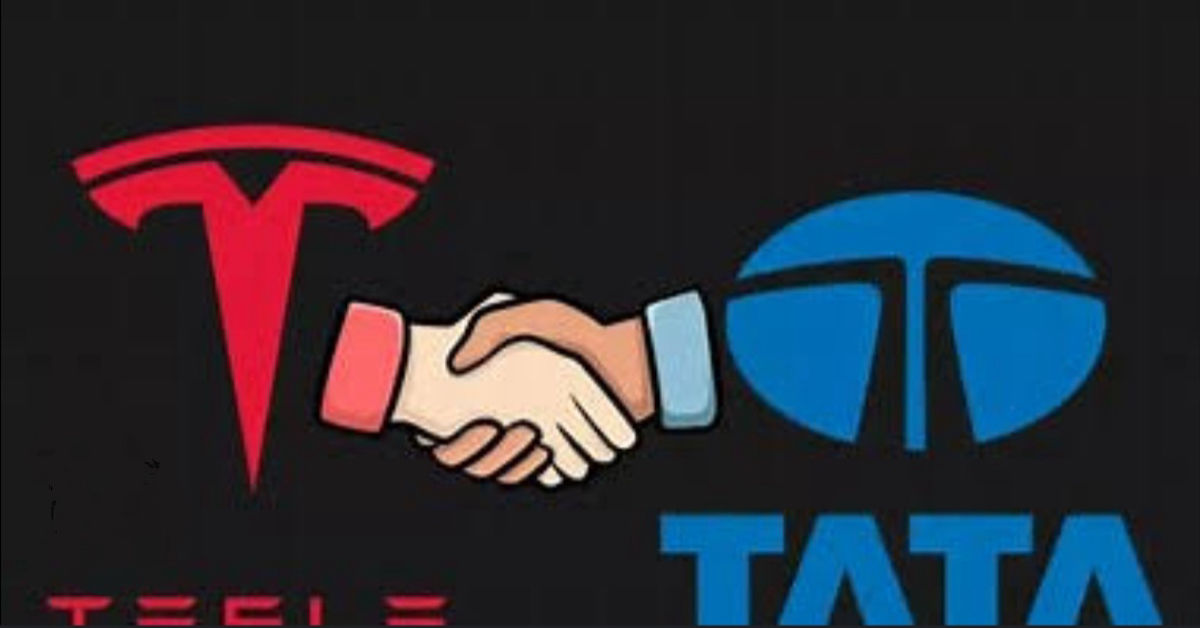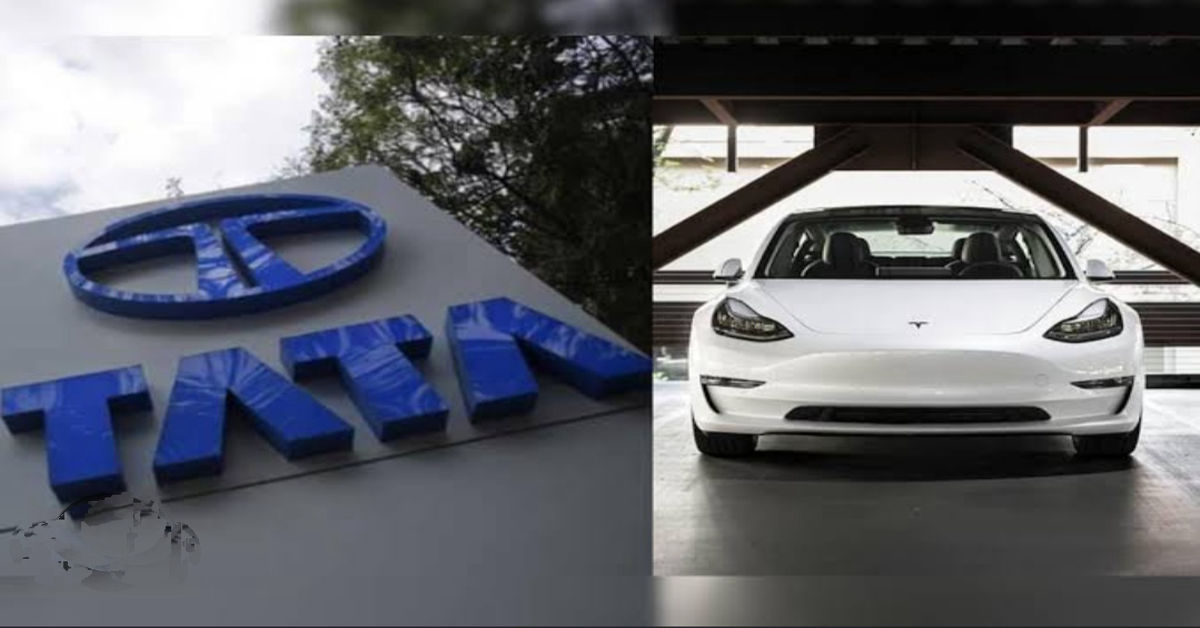Table of Contents
ToggleThe Electric Convergence: Decoding the Potential of a Tata-Tesla Partnership!
The automotive world is abuzz with the quiet yet potentially seismic development of Tata Group companies emerging as global suppliers to Tesla. This partnership, while shrouded in the usual corporate discretion, signals a significant shift in the electric vehicle (EV) landscape. It’s a confluence of two industrial titans, each bringing unique strengths to the table, and the implications are far-reaching. Let’s delve into the potential of this alliance, exploring the power words that define its significance and the broader impact it could have.

Power Words Defining the Partnership:
- Synergy: The core of this collaboration lies in the synergistic blend of Tata’s manufacturing prowess and Tesla’s technological innovation. This synergy promises to accelerate EV production and accessibility.
- Scale: Tata’s vast manufacturing capacity, encompassing steel, components, and engineering services, provides Tesla with the scale needed to meet its ambitious production targets.
- Innovation: Tesla’s relentless pursuit of technological advancement, coupled with Tata’s evolving engineering capabilities, fosters an environment ripe for innovation in EV technology.
- Vertical Integration: Tata’s diverse portfolio allows for enhanced vertical integration, potentially streamlining Tesla’s supply chain and reducing costs.
- Localization: Tata’s strong presence in India and other emerging markets facilitates localized production, enabling Tesla to navigate regional complexities and tap into growing EV demand.
- Sustainability: Both companies share a commitment to sustainable mobility, making this partnership a catalyst for accelerating the transition to a greener automotive future.
- Disruption: This collaboration has the potential to disrupt the traditional automotive supply chain, challenging established players and reshaping industry dynamics.
- Efficiency: Streamlining the supply chain and leveraging Tata’s manufacturing expertise can enhance Tesla’s production efficiency and cost-effectiveness.
- Expansion: Tata’s global footprint provides Tesla with opportunities for rapid expansion into new markets, particularly in Asia and emerging economies.
- Reliability: Tata’s reputation for quality and reliability ensures a stable and consistent supply of components, crucial for Tesla’s production goals.
Deep Dive into the Partnership’s Potential:
Tata Group’s involvement as a global supplier to Tesla could manifest in various ways. Tata Steel, for instance, could provide high-quality steel for vehicle bodies and chassis. Tata AutoComp Systems could supply critical components such as motors, battery packs, and electronic control units. Tata Consultancy Services (TCS) could offer software development and IT solutions for Tesla’s advanced vehicle systems.

Read this Post Also ; Life Changing Decision!.. Havells to Enter EV Charging Market in the Next 6 Months.
This partnership holds immense potential for both companies:
- For Tesla:
- Enhanced Supply Chain Resilience: Diversifying its supplier base with a reliable partner like Tata mitigates risks associated with supply chain disruptions.
- Cost Optimization: Leveraging Tata’s competitive manufacturing costs can improve Tesla’s profit margins.
- Accelerated Production: Tata’s manufacturing capacity can help Tesla achieve its ambitious production targets and meet growing demand.
- Market Expansion: Tata’s presence in emerging markets provides Tesla with a strategic advantage for expansion.
- Access to Skilled Workforce: Tata’s vast talent pool can contribute to Tesla’s engineering and software development efforts.
- For Tata Group:
- Technological Advancement: Collaborating with Tesla exposes Tata to cutting-edge EV technology and accelerates its own electrification efforts.
- Global Recognition: Partnering with a leading EV brand like Tesla enhances Tata’s global reputation and strengthens its position in the automotive industry.
- Revenue Growth: Supplying components and services to Tesla generates significant revenue streams for Tata’s various subsidiaries.
- Industry Leadership: This partnership positions Tata as a key player in the evolving EV ecosystem.
- Skilling and Job creation: The partnership will lead to upskilling of the Indian workforce and the creation of many new jobs.
The Broader Impact:
The Tata-Tesla partnership has the potential to reshape the global EV landscape:
- Increased EV Adoption: By leveraging Tata’s manufacturing capabilities, Tesla can potentially reduce production costs and make EVs more affordable, driving wider adoption.
- Development of a Robust EV Ecosystem: This collaboration can stimulate the development of a robust EV ecosystem in India and other emerging markets, including charging infrastructure and battery manufacturing.
- Technological Innovation: The exchange of knowledge and expertise between Tata and Tesla can lead to significant advancements in EV technology, benefiting the entire industry.
- Economic Growth: The partnership can create jobs and stimulate economic growth in both India and other regions where Tata operates.
- Environmental Sustainability: By accelerating the transition to EVs, this collaboration contributes to reducing greenhouse gas emissions and promoting environmental sustainability.
Challenges and Considerations:
Despite the immense potential, the partnership also faces challenges:
- Integration and Coordination: Integrating the supply chains and operations of two large and complex organizations requires careful planning and coordination.
- Quality Control: Maintaining consistent quality standards across multiple suppliers and manufacturing facilities is crucial.
- Intellectual Property Protection: Safeguarding intellectual property and ensuring fair competition is essential.
- Geopolitical Factors: Global political and economic uncertainties can impact the partnership’s success.
- Logistics and Infrastructure: Efficient logistics and adequate charging infrastructure are critical for supporting EV production and adoption.

Conclusion:
The quiet partnership between Tata Group and Tesla represents a significant milestone in the evolution of the EV industry. It’s a testament to the power of collaboration and the potential for synergy between established industrial giants and innovative technology companies. By leveraging their respective strengths, both companies can accelerate the transition to sustainable mobility and shape the future of transportation. While challenges remain, the potential benefits of this partnership are undeniable. It’s a convergence of vision, scale, and innovation, poised to electrify the world.